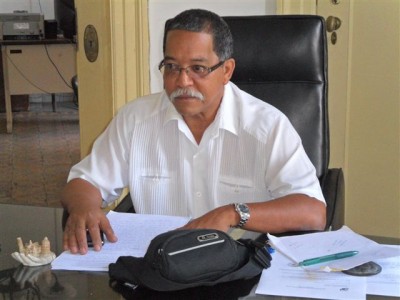Africa’s Children Return! Cuba and African Liberation

“The Cuban people hold a special place in the hearts of the peoples of Africa. The Cuban internationalists have made a contribution to African independence, freedom and justice, unparalleled for its principled and selfless character…Cubans came to our region as doctors, teachers, soldiers, agricultural experts, but never as colonizers. They have shared the same trenches with us in the struggle against colonialism, underdevelopment, and apartheid. Hundreds of Cubans have given their lives, literally, in a struggle that was, first and foremost, not theirs but ours. As Southern Africans we salute them. We vow never to forget this unparalleled example of selfless internationalism.”— Nelson Mandela
On November 5, 1975 in response to a direct and urgent request from the government of Angola, the Cuba initiated Operation Carlota. Having just achieved independence after a long and brutal anti-colonial struggle, Angola confronted an invasion by racist South Africa. South Africa was determined to destroy the Black government of the newly independent Angola. Operation Carlota was decisive in not only stopping the South African drive to Luanda (the capital) but also in pushing the South Africans out of Angola. The defeat of the South African forces was a major development in the African anti-colonial struggle.
The World, a Black South African newspaper, underscored the significance: “Black Africa is riding the crest of a wave generated by the Cuban success in Angola. Black Africa is tasting the heady wine of the possibility of realizing the dream of “total liberation.”
Operation Carlota was named after the leader of a revolt against slavery that took place in Cuba on November 5, 1843. Operation Carlota, Cuba’s internationalist mission of solidarity with the Angolan and southern African peoples, was to last more than 15-years. During that time, more than 330,000 Cubans served in Angola. More than 2, 000 Cubans died defending Angolan independence and the freedom and right of self-determination of the peoples of southern Africa.
Since the triumph of the Cuban Revolution on January 1, 1959, Cuba has engaged in ongoing solidarity with the peoples and the continent of Africa. In paying tribute to Cuba’s assistance to African liberation struggles, Amilcar Cabral (celebrated leader of the anti-colonial and national liberation struggle in Guinea Bissau and Cape Verde) stated: “I don’t believe in life after death, but if there is, we can be sure that the souls of our forefathers who were taken away to America to be slaves are rejoicing today to see their children reunited and working together to help us be independent and free.”
On November 13 and 14, 2015 we will commemorate the 40th anniversary of Cuba’s crucial role in the southern African national and anti-colonial liberation struggles, as well as, discuss and examine Cuba’s ongoing solidarity with Africa and Africans, and other peoples of the world.
For more information: [email protected] or call Isaac Saney: 902-494-8810 or[email protected] or call Miguel San Vincente: 416-538-0889
Sponsors include: Canadian Network On Cuba; A Different Booklist; Dalhousie JRJ Chair of Black; Asociación de Cubanos Residentes en Toronto “Juan Gualberto Gómez”; CCFA-Toronto.


